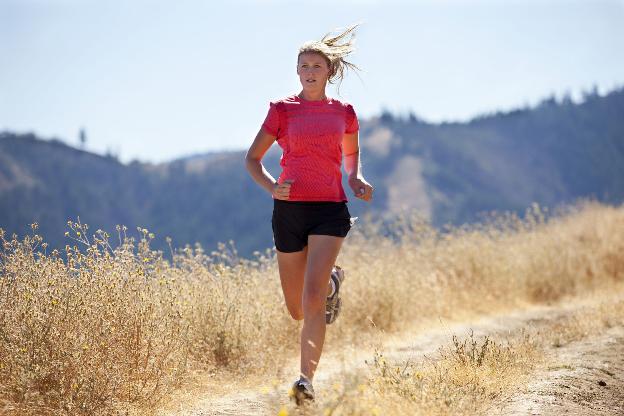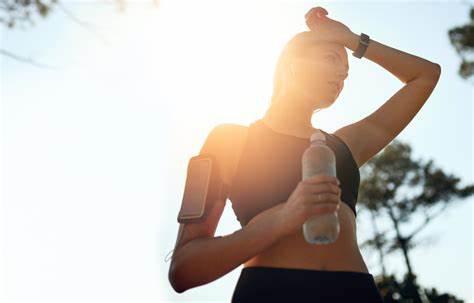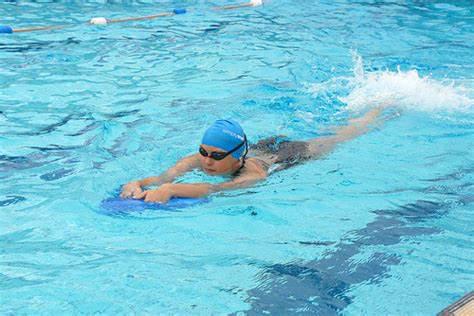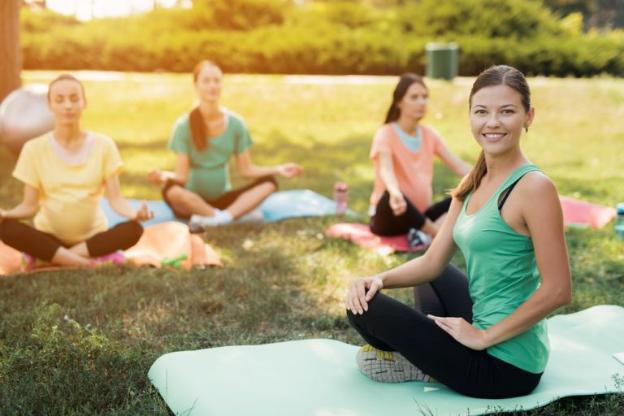The weather is getting hotter, which is also the time you should change your exercise habits to ensure your health and avoid dangers caused by heat such as dehydration, exhaustion, sunstroke, heatstroke...
1. Why do we need to pay attention when exercising in hot weather?
Dr. Lauren Castiello, a health care specialist in Boston, USA, said that during exercise, the body has a certain concentration and effort, so when exercising in high temperatures, the body will have to regulate to reduce body temperature and maintain the functioning of internal organs. One of the most notable ways is sweating. However, this mechanism can cause the body to lose water and cause health damage such as cramps, exhaustion, sunstroke, heatstroke...
In addition, when exercising, the muscles need adequate blood flow to continue moving, so the heart has to work harder. Furthermore, when it is hot, the heart also has to work harder to move blood to the skin's surface, where it is cooled and returned for recirculation. Therefore, exercising in hot weather makes it even harder for the heart, muscles, and lungs to function normally.
Exercising outdoors in hot weather can easily cause dehydration, sunstroke, heatstroke...
2. Measures to maintain health when exercising on hot days
2.1. Water retention
Exercising in hot weather can easily cause dehydration due to excessive sweating. Therefore, before exercising, you should drink water to ensure your body is hydrated. In addition, during exercise, you can sip small sips of water to avoid excessive dehydration.
For long, intense exercise sessions, you may want to add electrolytes to your water to ensure adequate replacement of essential minerals (including sodium and potassium) lost through sweat.
After your workout, you should replenish with cool water, a sports drink, or even a glass of milk to provide protein and electrolytes.
Drinking enough water helps the body avoid dehydration when exercising in hot weather.
2.2. Reduce intensity and change training location
Hot weather can easily cause health problems such as sunstroke, heatstroke, increased risk of stroke due to exhaustion, severe dehydration... Therefore, when the weather is hot, you should consider reducing the intensity of your exercise to suit your health.
Besides, if possible, you should temporarily change your workout location, such as not exercising outdoors but moving into an air-conditioned gym or instead of walking or jogging, you can go swimming...
Avoid exercising in urban areas if you can and look for a cooler place with green space, shade, ponds... to exercise.
Swimming is a suitable sport in hot weather.
2.3. Plan and dress appropriately
You should pay attention to the weather forecast before exercising and complete your workouts early in the morning or late at night, when the outside temperature is lower.
Wear loose, light-colored, breathable clothing to allow sweat to evaporate, helping your body stay cooler. Wear a wide-brimmed hat, sunglasses, and apply sunscreen (with an SPF of 30 or higher and water-resistant) 30 minutes before you start exercising to avoid sunburn.
2.4. Choosing the time to practice
If you want to exercise outdoors, you should do it early in the morning or late at night to avoid the hottest time of the day (from 10am to 3pm daily).
2.5. Combination of cooling methods
Use both internal (such as drinking cool, cold water) and external (such as wearing a cold jacket or using a cold towel) cooling methods before, during, and after exercise. Soaking your hands, forearms, and feet in cold water can also help lower your temperature. It is best to shower before and after exercise. However, you should shower with warm water and not cold water because it is easy to get sick when your body temperature increases during exercise and suddenly encounters cold water.
2.6. Listen to your body
Heat illness can be life-threatening, so it’s important to be as cautious as possible when exercising on a hot day. Monitor your heart rate and listen to your body to adjust the intensity and duration of your workout accordingly.
Symptoms of heat illness include headache, dizziness, confusion, heavy sweating, muscle cramps (including in the stomach), weakness, severe fatigue, and unusually heavy breathing or rapid heartbeat. If you experience these symptoms, stop exercising and cool down as quickly as possible by immersing yourself in cool water or resting in the shade.
Listen to your body and choose shade to exercise to help prevent health risks on hot days.
Note that the elderly, children, pregnant women and people with underlying medical conditions are at higher risk and are more susceptible to the adverse effects of hot weather. Therefore, these cases need to pay special attention or consult a doctor if they want to exercise when the temperature is hot.
According to SKDS
Source
























































![[Maritime News] More than 80% of global container shipping capacity is in the hands of MSC and major shipping alliances](https://vphoto.vietnam.vn/thumb/402x226/vietnam/resource/IMAGE/2025/7/16/6b4d586c984b4cbf8c5680352b9eaeb0)













































Comment (0)